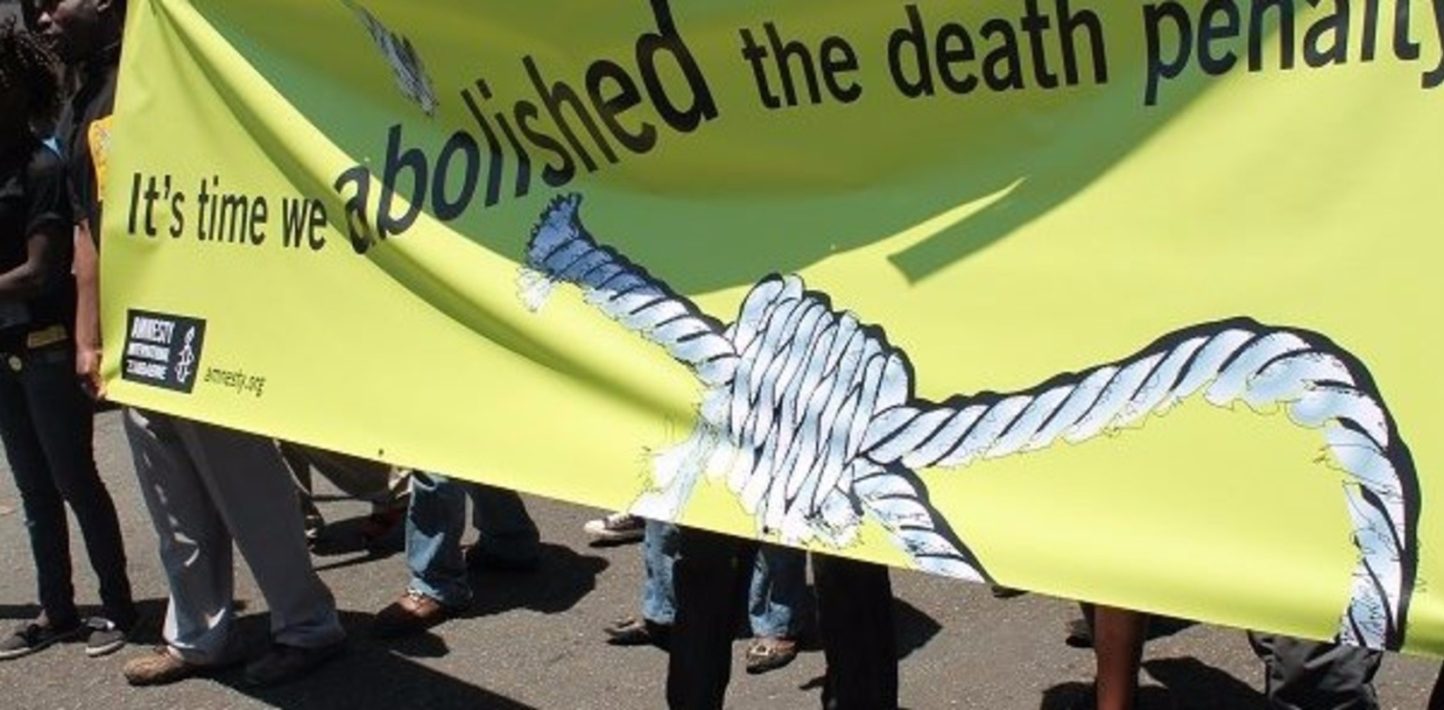• 148 death row prisoners in grim conditions, including six that the Prison Service considers to be mentally ill
• Less than a quarter of death row inmates have been able to appeal their cases
• No progress on abolition since recommendation by Constitution Review Commission in 2011
Close to 150 death row inmates languish in grim conditions in Ghana with only a fraction able to appeal their convictions, Amnesty International said today in a new report that calls on the country’s new government to abolish the death penalty once and for all.
Based on interviews with 107 death row prisoners, Locked up and Forgotten: The need to abolish the death penalty in Ghana provides further evidence of why Ghana should abolish this cruel punishment, in line with the recommendation of the 2011 Ghanaian Constitution Review Commission.
“The 2011 constitutional review should have signaled the end of the road for the death penalty in Ghana, but six years on, courts continue to hand down this cruel punishment, while death row prisoners remain trapped in cramped conditions, separated from other prisoners, and with no access to educational or recreational activities,” said Alioune Tine, Amnesty International’s Regional Director for West and Central Africa.
“The Ghanaian authorities should commute the death sentences of all death row prisoners to terms of imprisonment, and ensure all these cases are reviewed to identify any potential miscarriages of justice.”
The 2011 constitutional review should have signaled the end of the road for the death penalty in Ghana, but six years on, courts continue to hand down this cruel punishment, while death row prisoners remain trapped in cramped conditions, separated from other prisoners, and with no access to educational or recreational activities
Alioune Tine, Amnesty International’s Regional Director for West and Central Africa
Many death row inmates told Amnesty International that they did not receive adequate legal representation for their trials, and the vast majority have been unable to appeal. Although around three quarters of prisoners were provided with a government-appointed lawyer in court, some prisoners said that their lawyer asked for payment. Several said that their lawyers had not attended all the court hearings while many others said they did not have a chance to talk to their lawyer to prepare their defence.
One death row prisoner said: “I have no money, this is why I am here. If I had money I would be outside by now.” The UN Human Rights Committee and UN Special Rapporteur on Torture have previously raised concerns over the quality of state-supplied legal aid in Ghana.
Fewer than one in four death row inmates interviewed had been able to appeal their conviction or sentence, and the Ghana Prison Service informed Amnesty International that only 12 death row inmates had filed appeals since 2006 – half of which were successful. Few inmates interviewed were aware of how to appeal or access legal aid, while most were unable to pay for private lawyers.
Poor conditions on death row
The death row at Nsawam Prison is overcrowded, poorly maintained and there are just seven toilets between more than 100 prisoners. The men’s section contains 24 small cells to hold four prisoners each, four medium-sized cells with up to eight prisoners per cell and two larger cells to hold 16 prisoners each. The single window in each cell is locked with metal bars and cannot be opened. Small holes in the cell walls provide limited ventilation.
There are just four female death row prisoners at Nsawam and they share a single cell, isolated from other female prisoners. Prisoners on death row displayed signs of distress and anxiety, with several men and women in tears when speaking to Amnesty International about their situation.
One prisoner told Amnesty International: “If I were to be killed, it would be better than being here.”
Amnesty International is calling on the Ghanaian authorities to ensure that prisoners are provided with adequate food, medical care and access to recreational and educational facilities, in line with international standards.
In March 2017 there were six prisoners on death row officially considered to have mental and intellectual disabilities. They received no specialized treatment, although the Prison Service said it was seeking psychiatric support.
“Keeping people with mental or intellectual disabilities on death row violates international human rights law, and puts their safety and that of other prisoners at risk,” said Alioune Tine.
Death row prisoners also face discrimination and isolation as they are not allowed to participate in the recreational or educational opportunities available to other prisoners.
One prisoner described the death row section as “a prison within a prison”. One woman who had been on death row for nine years told Amnesty International, “I don’t do anything. I sweep and wait.”
Keeping people with mental or intellectual disabilities on death row violates international human rights law, and puts their safety and that of other prisoners at risk
Alioune Tine
Amnesty International is calling on the Ghanaian authorities to abolish the death penalty for all crimes.
“105 countries around the world, including 19 in Africa, have abolished the death penalty for all crimes. A great way for Ghana to mark its 60th anniversary of independence this year would be to abolish this cruel punishment and end the suffering of the death row prisoners who have been locked up and forgotten,” said Alioune Tine.
Background
As of 30 December 2016, 148 prisoners were on death row in Ghana – 144 men and four women. All were sentenced to death for murder. The last execution in Ghana took place in 1993.
For this report, Amnesty International interviewed 107 prisoners on death row – 104 men and three women – during two visits in August 2016 and March 2017.


